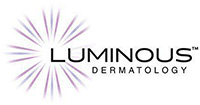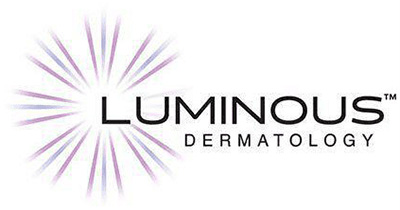Does Health Insurance Cover Skin Issues?
It’s easy to get confused about insurance coverage for dermatology services. Here is what you should know before scheduling your appointment.
If you’ve put off a visit to a dermatologist because you aren’t certain your health insurance will cover the costs, please be aware that many skin concerns or changes aren’t simply aesthetic matters — they might merit medical attention.
While most dermatology clinics offer elective cosmetic services that address issues solely related to the appearance of your skin (laser hair removal, dermal fillers, and tattoo removal, for example), dermatologists are qualified doctors who diagnose and treat medical conditions. If you have concerns about a particular issue relating to the health of your skin, hair, or nails you might be able to apply your health insurance coverage to the cost of your treatment. Here are answers to a few common questions about coverage for dermatological concerns. Always consult with your medical insurance provider to understand what your plan covers.
Is my issue cosmetic or medical?
Health insurance coverage will depend on whether your visit is for an elective procedure or an underlying medical condition that needs treatment.
In general, treatments that address abnormalities relating to illnesses, injuries, or congenital anomalies (lesions, scars, or birthmarks, for example) are covered.
Although acne seems more like a cosmetic nuisance than a health concern, acne is a medical issue that might require an intervention your provider deems medically necessary under certain circumstances.
For a visit to be deemed a medical necessity, the dermatologist must perform an examination that assesses, identifies, or addresses a medical issue that will negatively affect your overall health if left untreated. Your insurance carrier will provide documentation of the conditions and treatments that qualify for coverage.
If you are experiencing symptoms and aren’t sure if they would qualify for coverage under your plan, contact your insurance carrier for clarification or call one of our offices and we can help you review your coverage.
Will my appointment be covered?
To determine whether your evaluation will be covered by your carrier, you have to first find out if your dermatologist is in your carrier’s network. Your carrier will provide you with a list of the in-network dermatologists in your area. You can also contact a dermatology practice and ask if they accept your insurance plan.
If you choose to contact a dermatology center directly, please have your insurance information handy so that you can provide the specific plan and policy details. Though some practices might accept an insurance carrier, they might not accept certain plans from that carrier.
Will I have to be referred by my primary care physician?
Your insurance carrier might require a referral before covering a visit to a specialist. If you have a point of service (POS) or a health maintenance organization (HMO) plan, your carrier will require a referral from a primary care physician for an in-network dermatologist.
However, if you have a preferred provider organization (PPO) plan, you might be able to visit an in-network specialist directly.
It is best to review your plan information with your insurance company. Your insurance card will have a member services phone number you can use to reach a representative who can discuss your coverage terms.
Will I have out-of-pocket costs?
Your plan might require you to pay a co-payment even if the treatment is deemed a medical requirement. Your plan might also require you to pay for a portion of your visit – or your entire visit – until you have met your deductible.
If you have any questions about your insurance coverage, co-payments, your deductible, or payment plan options, we suggest reaching out to your insurance carrier directly but please don’t hesitate to contact us for assistance. We are here to help!
It’s easy to get confused about insurance coverage for dermatology services. Here is what you should know before scheduling your appointment.
If you’ve put off a visit to a dermatologist because you aren’t certain your health insurance will cover the costs, please be aware that many skin concerns or changes aren’t simply aesthetic matters — they might merit medical attention.
While most dermatology clinics offer elective cosmetic services that address issues solely related to the appearance of your skin (laser hair removal, dermal fillers, and tattoo removal, for example), dermatologists are qualified doctors who diagnose and treat medical conditions. If you have concerns about a particular issue relating to the health of your skin, hair, or nails you might be able to apply your health insurance coverage to the cost of your treatment. Here are answers to a few common questions about coverage for dermatological concerns. Always consult with your medical insurance provider to understand what your plan covers.
Is my issue cosmetic or medical?
Health insurance coverage will depend on whether your visit is for an elective procedure or an underlying medical condition that needs treatment.
In general, treatments that address abnormalities relating to illnesses, injuries, or congenital anomalies (lesions, scars, or birthmarks, for example) are covered.
Although acne seems more like a cosmetic nuisance than a health concern, acne is a medical issue that might require an intervention your provider deems medically necessary under certain circumstances.
For a visit to be deemed a medical necessity, the dermatologist must perform an examination that assesses, identifies, or addresses a medical issue that will negatively affect your overall health if left untreated. Your insurance carrier will provide documentation of the conditions and treatments that qualify for coverage.
If you are experiencing symptoms and aren’t sure if they would qualify for coverage under your plan, contact your insurance carrier for clarification or call one of our offices and we can help you review your coverage.
Will my appointment be covered?
To determine whether your evaluation will be covered by your carrier, you have to first find out if your dermatologist is in your carrier’s network. Your carrier will provide you with a list of the in-network dermatologists in your area. You can also contact a dermatology practice and ask if they accept your insurance plan.
If you choose to contact a dermatology center directly, please have your insurance information handy so that you can provide the specific plan and policy details. Though some practices might accept an insurance carrier, they might not accept certain plans from that carrier.
Will I have to be referred by my primary care physician?
Your insurance carrier might require a referral before covering a visit to a specialist. If you have a point of service (POS) or a health maintenance organization (HMO) plan, your carrier will require a referral from a primary care physician for an in-network dermatologist.
However, if you have a preferred provider organization (PPO) plan, you might be able to visit an in-network specialist directly.
It is best to review your plan information with your insurance company. Your insurance card will have a member services phone number you can use to reach a representative who can discuss your coverage terms.
Will I have out-of-pocket costs?
Your plan might require you to pay a co-payment even if the treatment is deemed a medical requirement. Your plan might also require you to pay for a portion of your visit – or your entire visit – until you have met your deductible.
If you have any questions about your insurance coverage, co-payments, your deductible, or payment plan options, we suggest reaching out to your insurance carrier directly but please don’t hesitate to contact us for assistance. We are here to help!
Suggested Reads

Luminous Dermatology
© 2024 Luminous Dermatology. All Rights Reserved. | Sitemap | Privacy Policy | Notice of Privacy Practices | Terms of Service


